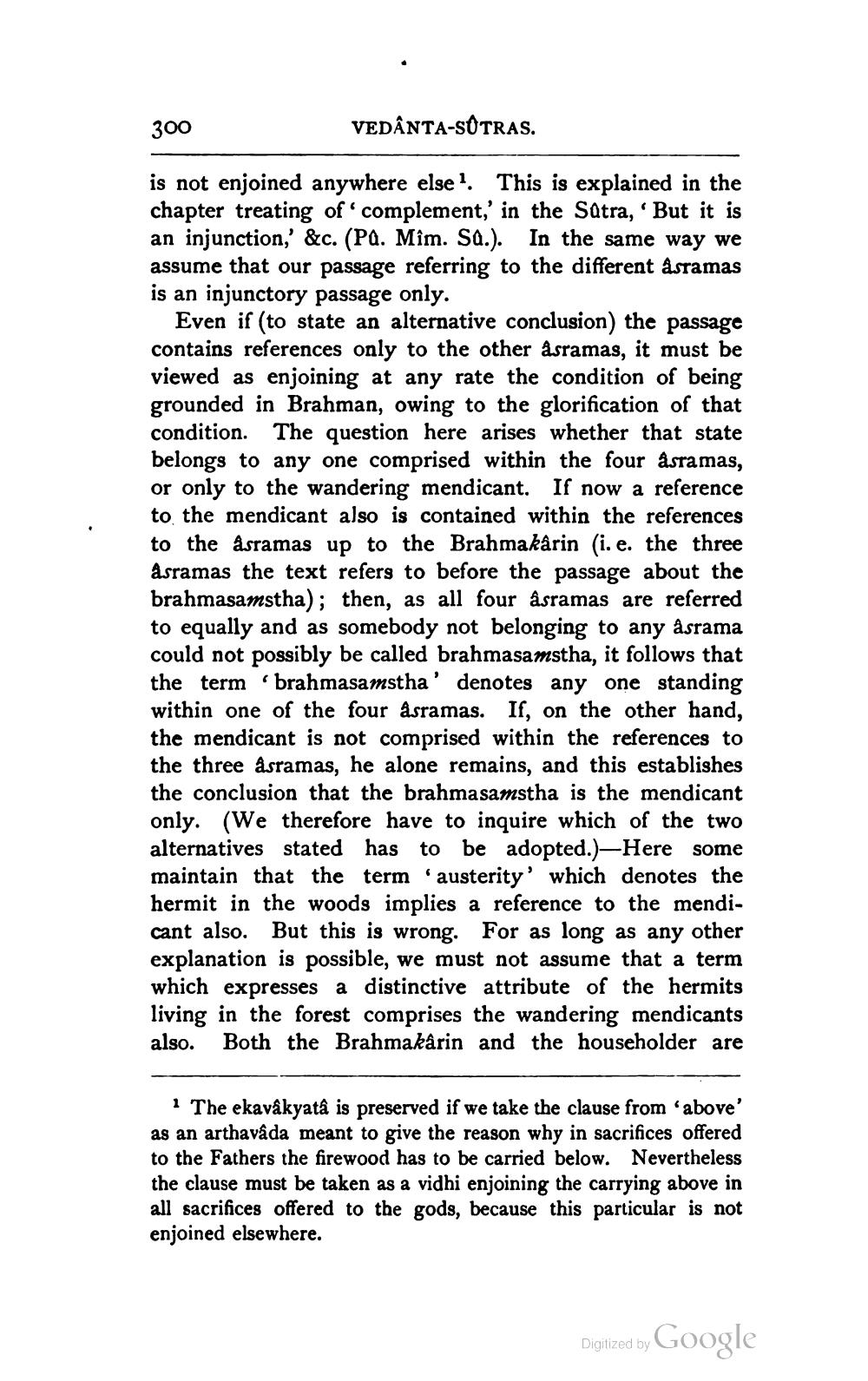________________
300
VEDANTA-SUTRAS.
is not enjoined anywhere else1. This is explained in the chapter treating of 'complement,' in the Sûtra, 'But it is an injunction,' &c. (Pů. Mîm. Sa.). In the same way we assume that our passage referring to the different âsramas is an injunctory passage only.
Even if (to state an alternative conclusion) the passage contains references only to the other asramas, it must be viewed as enjoining at any rate the condition of being grounded in Brahman, owing to the glorification of that condition. The question here arises whether that state belongs to any one comprised within the four âsramas, or only to the wandering mendicant. If now a reference to the mendicant also is contained within the references to the âsramas up to the Brahmakârin (i. e. the three asramas the text refers to before the passage about the brahmasamstha); then, as all four âsramas are referred to equally and as somebody not belonging to any asrama could not possibly be called brahmasamstha, it follows that the term brahmasamstha' denotes any one standing within one of the four åsramas. If, on the other hand, the mendicant is not comprised within the references to the three âsramas, he alone remains, and this establishes the conclusion that the brahmasamstha is the mendicant only. (We therefore have to inquire which of the two alternatives stated has to be adopted.)-Here some maintain that the term 'austerity' which denotes the hermit in the woods implies a reference to the mendicant also. But this is wrong. For as long as any other explanation is possible, we must not assume that a term which expresses a distinctive attribute of the hermits living in the forest comprises the wandering mendicants also. Both the Brahmakârin and the householder are
1 The ekavâkyatâ is preserved if we take the clause from 'above' as an arthavâda meant to give the reason why in sacrifices offered to the Fathers the firewood has to be carried below. Nevertheless the clause must be taken as a vidhi enjoining the carrying above in all sacrifices offered to the gods, because this particular is not enjoined elsewhere.
Digitized by Google




